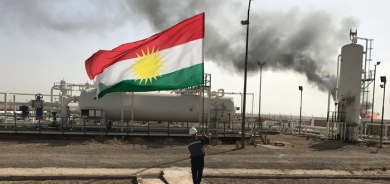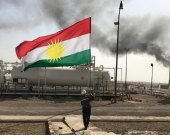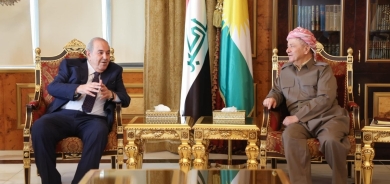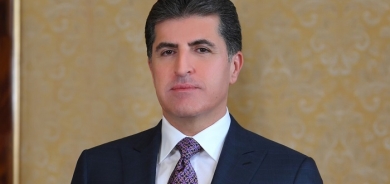Duhok’s Kesta village completely evacuated overnight due to Turkish bombardments

“Our village was evacuated after 7 and 8 in the evening. There was heavy bombardment around the village,” Mahmood Hussein, the mukhtar (chief) of Kesta told Rudaw’s Hunar Rasheed late Tuesday.
Hussein said “each family went to a house” in Amedi's Chalke village. “It’s sad a fertile village like that, with so much livestock is now being evacuated. It’s unfortunate,” said the chief, stating that the people are safe.
Some people in the village go back to attend to their animals and farmlands if they can, a villager who preferred to stay anonymous told Rudaw English on Wednesday morning, adding that “no one really stays there at night, it’s not a place to live anymore.”
The village chief previously told Rudaw, “our condition is worsening day-by-day because the Turks and the PKK are coming closer every day. This may result in the destruction of the village.”
The village of Kesta is nestled between mountains in northern Duhok province. It is home to farmers and beekeepers. But the peaceful spot is now a battlefield.
In late April, Turkey launched Operations Claw-Lightning and Claw-Thunderbolt against the Kurdistan Workers’ Party (PKK) in the Metina and Avashin areas of northern Duhok, near the border. A goal of the operation was to establish a military base to block PKK movements between the Kurdistan Region and Turkey and Syria.
Turkish troops last week advanced towards Kesta, and has now set up two outposts on hills overlooking the village, part of their campaign against the PKK.
The PKK is an armed group that has struggled for increased rights for Kurds in Turkey for decades. The group has had a presence in the Kurdistan Region’s mountains since the early eighties.
Most of the PKK’s camps in the Kurdistan Region are located in Duhok province, which borders Turkey. Ankara frequently crosses the border with air and ground campaigns to pursue the PKK.
“Our situation has worsened a lot. We have farmlands near the village, but we can’t go and water them. We should have watered them three to four times, but we couldn’t,” Saeed Rashid from the village told Rudaw on Sunday, who had sent his family to Duhok and stayed behind alone to take care of his farm.
Rudaw















